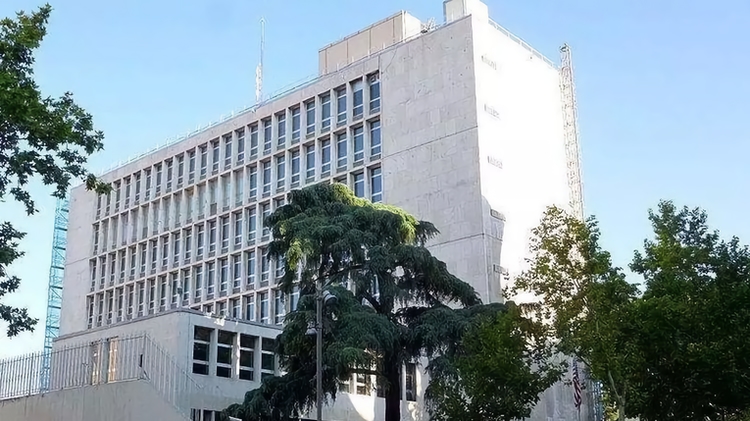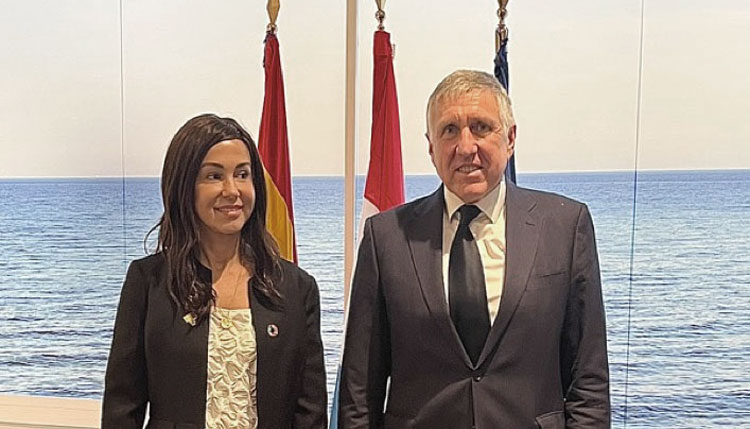The Diplomat
National Court is investigating a wave of letter bombings against several targets in Spain linked to support for Ukraine in the face of the Russian invasion, including the Ukrainian and US embassies in Madrid. The Russian Embassy condemned the attacks, in a gesture intended to prevent any attempt to establish any connection between the possible perpetrators and Moscow.
After it emerged on Wednesday that an envelope containing pyrotechnic material addressed to the Ukrainian ambassador, Serhii Pohoreltsev, caused minor injuries when the embassy employee who opened it exploded, it emerged yesterday that five more envelopes were detected before they exploded.
The first of the envelopes was sent to the Moncloa Palace on 24 November, addressed to Prime Minister Pedro Sánchez. Another was addressed to the company Instalaza, from Zaragoza, which specialises in defence material and manufactured the 1,370 C-90 and Alcotán grenade launchers that Spain delivered to Ukraine last March; another was sent to the Satellite Centre at the Torrejón de Ardoz Air Base, inaugurated on 27 September by the Minister of Defence, Margarita Robles; and a fourth device was sent yesterday morning to the head of the Ministry of Defence herself.
Finally, in the early afternoon, the National Police’s explosives deactivation unit, Tédax, detonated yesterday a device addressed to the US ambassador to Spain, Julissa Reynoso, which was detected by the diplomatic representation’s security filter. National Court has taken over the investigation of these events as alleged cases of “terrorism”.
The State Secretary for Security, Rafael Pérez, told journalists yesterday that, in all the cases, “there is an appearance that they have been sent from national territory“. Similar explosive envelopes have not been detected in any other country in the European Union to date.
Margarita Robles declared yesterday in the Ukrainian city of Odessa, during a press conference with her Ukrainian counterpart, Oleksii Reznikov, that neither the sending of explosive letters nor any other violent activity will change Spain’s “firm and clear” commitment to support Ukraine in its defence against the Russian military offensive.
In Madrid, the Ukrainian ambassador yesterday blamed Russia for the letter bomb. “We know that our enemy is a terrorist state and we can expect anything. We have to take action,” he said, expressing the hope that Spain would recognise Russia as a terrorist state. “Many European countries have already done so and I hope that the Spanish Parliament will do the same”, he added. Pohoreltsev also assured that the embassy is improving its security systems and that he expects the results of the investigation “to be very quick”.
For its part, the Russian Embassy issued a statement yesterday with the clear aim of disassociating itself from any responsibility of its country in the attacks. “In view of the information that is appearing in the Spanish media regarding the explosive packages sent to the Ukrainian Embassy in Spain and some official Spanish entities, we declare: any threat or terrorist act, even more directed against a diplomatic mission, is totally condemnable,” said the Russian representation in Madrid.
Last November 23, the European Parliament passed a resolution to declare Russia as “a state sponsor of terrorism and a state using terrorist means”. The EU cannot currently officially designate states as sponsors of terrorism, so the Parliament calls on the EU and its member states to establish the appropriate legal framework and consider adding Russia to such a list. This would trigger a series of significant restrictive measures against the countries included and would have profound implications for the EU’s relations with Russia.







